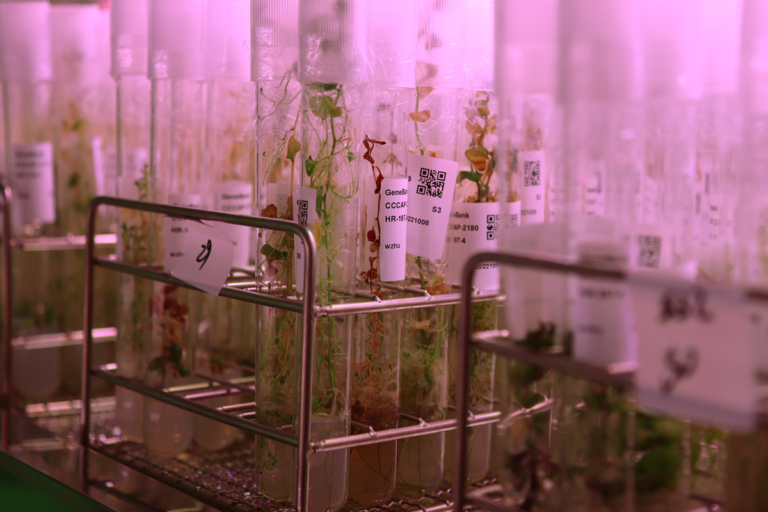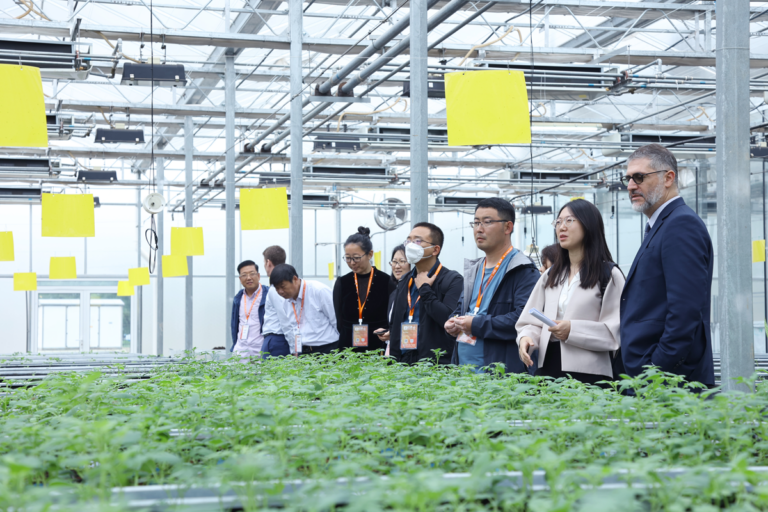PRESS RELEASE
30 May 2023 – The Inaugural Open Day of the International Potato Center-China Center for Asia Pacific (CCCAP) was successfully held in Yanqing, Beijing. The theme “Global Treasure for Food Security” showcased the conservation of CCCAP’s germplasm resources and the latest scientific advancements to experts and representatives from relevant Chinese government departments, universities, research institutions, international organizations and enterprises. The event aimed to spread scientific knowledge about potato germplasm resource conservation, foster international exchange and mutual learning on scientific research and technology, and contribute to the sustainable development of the Chinese and international potato industry.

CCCAP’s researchers provided a detailed introduction to the nutritional value of potatoes and their significance in maintaining food security. In addition, through thematic presentations, experts and scholars offered insights into the current status of potato and sweet potato germplasm resources, the process of introducing germplasm and related policies, and the latest applied research in China and abroad. As a result, many participants said that their understanding of the importance of potato germplasm resources in supporting the breeding of high-quality seeds had been deepened.
Potato, as the world’s fourth largest food crop, plays an important role in global food security, according to Simon Heck, Director General of the International Potato Center. In his speech, he stated that “The International Potato Center aims to further strengthen the close cooperation with China and other countries in the Asia-Pacific region through the China Center for Asia Pacific to promote variety improvement, disease prevention and control, and technological progress through in-depth research to enhance the efficient utilization of potato and sweet potato, enhance food security and poverty reduction in the region.”
During the event, guests also had the opportunity to visit the germplasm genetic repository, greenhouse and experimental fields in the Yanqing base of CCCAP to learn about CIP’s current projects on late blight-resistant potato breeding and hybridization experiments in China. A researcher from the Anhui Academy of Agricultural Sciences expressed her excitement about learning so much during the visit and said, “I was thrilled to see the abundant germplasm resources at the center. I hope to introduce materials for future research and learn about their advanced hybridization technologies.”

CIP is a non-profit international organization focusing on potato research and conserves the world’s most diverse collections of potato and sweet potato germplasm resources. As the regional center of CIP in Asia, the CCCAP was registered with the Ministry of Foreign Affairs of the People’s Republic of China in 2015 and began its independent operations in 2018.
For further information contact
Viviana Infantas, Events and Outreach Specialist, International Potato Center
About CIP
CIP was founded in 1971 as a research-for-development organization with a focus on potato, sweetpotato and Andean roots and tubers. It delivers innovative science-based solutions to enhance access to affordable nutritious food, foster inclusive sustainable business and employment growth, and drive the climate resilience of root and tuber agri-food systems. Headquartered in Lima, Peru, CIP has a research presence in more than 20 countries in Africa, Asia and Latin America.
About CGIAR
CGIAR is a global research partnership for a food-secure future. CGIAR science is dedicated to transforming food, land and water systems in a climate crisis. Its research is carried out by CGIAR Centers/Alliances in close collaboration with hundreds of partners, including national and regional research institutes, civil society organizations, academia, development organizations and the private sector. www.cgiar.org
